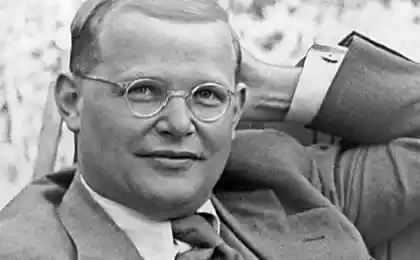459
5 books about human nature: perception of time, stupid, love and melancholy
Why summer is not as long as in childhood? Why do people talk to Pets? What do you mean "stupid society"? The answers to these questions, as well as male tears, flirting with the German occupiers, and the neurotic — the selection of books about human nature.
Ten million five hundred seventy two thousand seven hundred fifty
Leonard Mlodinow"(Neo)confessed. How the unconscious mind controls our behavior" Leonard Mlodinow, physicist, co-author of Stephen Hawking and Professor at Caltech University in Pasadena (there are characters from "the big Bang Theory") took up the new subject — the human psyche. Mlodinow introduces the concept of "new unconscious". Unlike the Freudian unconscious, the irrational, dark and lurking dangers, the new unconscious is the best adaptation of the individual in society, holds "archived" experience, knowledge and rules, though at times faltering.
With examples from anatomy of the nervous system, the experiments of social psychology and jokes about his mother in the style of Howard Wolowitz Mlodinow describes the wonderful world of the new unconscious. It turns out that many of our memories artificially constructed, and important decisions (for example about who to vote for or where to invest), we often accept not rational, as it may seem, automatically. However, due to the usefulness of the mechanism of empathy, we expect a reasoned and sensible behavior, friends and even our Pets. Also from the book, you can learn about whether or not to trust the testimony of witnesses at trial, the necessity of stereotypes for structuring of perception and the mating rituals of fruit flies.
"Trying to explain to the police your turn through a solid, you attract the conscious part of the mind and design the optimal explanation, and the unconscious, meanwhile, is busy with the selection of appropriate verb forms, the subjunctive and infinite prepositions and particles, ensuring your excuses productive grammatical form. If you were asked to get out of the car, you instinctively stand about a meter and a half from the police, though, talking with friends, automatically reduce this distance in centimeters to sixty to seventy. Most subject to these unwritten rules of distance with other people, and we inevitably feel the inconvenience when these rules are broken".
Twenty nine million one hundred seventy one thousand forty two
Claudia Hammond's"time warped: the characteristics of perception of time a Professional psychologist, writer and broadcaster, and lecturer at Boston University in London, Claudia Hammond has collected and described the material in complex and multi-faceted topic — the perception of time.
Quoting the diaries of prisoners of war or describing scientific experiments with tactile illusions, Claudia Hammond consistently entertainingly explains why with age, time starts to flow faster and why summer child — a whole era, and summer is an adult — transient routine; why the return journey always seems shorter, and for what reasons the time for a patient with a high fever or the person standing at the precipice of slowing down.
The book talks about how different perceived 30 minutes in line for paperwork or while reading an interesting book about what it means "rhythm of life" of the city and the attitude to time in different cultures; about the way of life of a medieval monastery and people with disorders of perception of time, that such "effect of holidays" and the amazing feeling when among our colleagues and friends there are those who are born in the 90s, though, would seem to place them behind a school Desk.
And at the end of "Distorted time" provides practical advice on how to lengthen and slow down your subjective time, or Vice versa to make it flow faster.
"Take performance and party starting at the same time — 19:30. Many cultures around the world, including Europe and North America, taken at the performance to come a little early and party later. Sociologist Eviatar Zerubavel believes that these generally accepted standards allow us to judge the time. We know that usually a show or performance continues for two hours, and everything takes longer for us was too long. However, the same two-hour period will seem too short to us, if we talk about the morning working hours. Accustomed to see a friend in the same hour, we are faced with different times of the day, can not learn. Within cultures develop certain rules: how long can I stay away how long should I care for the girl before you make her an offer. Exceptions to these rules surprise us".
Ninety six million four hundred twenty five thousand seven hundred eighty nine
Jose Antonia Marina"Defeated mind. Theory and practice of stupidity" Spanish philosopher, psychologist and educator josé Antonio Marina, author of books about fear and education of the talent felt that research deserve not only reason and intellect, but stupid.
Marina believes stupidity is a serious and contagious disease of the society and talks about that many things to admire (for example, a quick and useless death in battle due to improper management), is to condemn for the folly, not to sing.
The author argues that in addition to smart and stupid people, for example, there are smart and stupid companies; includes the concept of stupidity cognitive errors, the inability to perceive reality adequately and to manage their behavior, describes how the prejudices, emotions, conceit and wrong objectives don't give people the right to think, and finally binds the opposite of stupidity is intelligence with the ability to be happy.
"Some time ago in a German newspaper had printed a piteous letter to a certain engineer who developed the crematoria ovens for the Nazi death camps. He complained that no one appreciated the technical quality of his developments. After all, to kill quickly and effectively a million or a few million human bodies is not so easy. The process of destruction of human remains had to be continuous, fast and cheap. How do you like the claim of a German engineer?»
Sixty nine million two hundred fifty four thousand six hundred forty two
Fabienne Caste-Rosas"History of a flirt" French journalist and historian Fabienne Caste-Rosas undertook to explore the history and development of the concept of "flirting". The emergence of flirting we owe to the needs of the war economy, and he appeared in the Belle Époque believes Caste-Rosas. From the book you can learn about the flirting as a means against existential angst, about when flirting with psychoanalysis, feminism and the sexual revolution, and the flirting and the first kiss as a group of teenage initiatic practice.
The adventures of a young Simone de Beauvoir, the fashion for tango, a retelling of little-known now, but popular at the time of the novels, diaries and memoirs; doctors of the early XX century that flirt and Masturbation depletes the body — all interwoven into one vivid, but logical story.
In addition to the funny stories about flirting in the cinema and such an original way to show the lady love as there are flowers and ribbon from her bouquet, in the "History of a flirt" discusses the differences in the manners of Europe and the United States, to change public sentiment after the First world war and girls flapper, the new Puritanism of the 30's and the flirt as a collaborator in the ' 40s.
"In 1922 at the insistence of a number of leagues and associations for the protection of the family the Hollywood censors issued a decree that a kiss should not take more than 2, 15 meters of film (i.e. about three seconds), inclusive of all phases of this event, starting with smiles and ending with the final embrace".
Forty four million one hundred sixty seven thousand nine hundred thirty
Karin Johannisson"History of melancholy. About fear, boredom and sensitivity in former times and now" Experience of loss, terror, anxiety, fatigue, confusion, vulnerability, laziness, boredom, sadness, disgust, insomnia, nervous breakdowns, overvoltage — such events devoted to the book the Swedish researcher-scholar Karin Johanneson.
With scientific meticulousness the book covers questions about the relationship of melancholy and personal identity, about fashion on those or other psychological States, neurosis as a supposedly mandatory property intelligent people and gender norms in relation to anguish and sorrow.
The border between illness and health, eating disorders, associated with melancholy, reflection of feelings in literature and in turn the experiences of the reader on the book, relationship of perfectionism and neurosis — everything will be laid out in the book of heroes, where you will be and visitors of the literary salons, where it was considered necessary to demonstrate your tears and sensitivity, and "fade in" the inhabitants of the modern metropolis.
"The establishment in the nineteenth century, clear boundaries between private and public, on the one hand, a man and a woman, on the other, marked a turning point in the history of tears. When self-control and self-control become the pivot on which rests the modern personality, tearful sentimentality became burdensome, and the tears started to cause irritation. Strong feelings were not released the identity, but on the contrary drove them out of balance. Attacks of tears in men was seen as a defeat or humiliation. To withdraw from the principle of restraint and give way to tears — meant to catch up with the women, children, to recognize themselves as "a rag". Even women, though they were preserved right to cry, could not, as before, to demonstrate the nobility of nature."
Source: theoryandpractice.ru
Ten million five hundred seventy two thousand seven hundred fifty
Leonard Mlodinow"(Neo)confessed. How the unconscious mind controls our behavior" Leonard Mlodinow, physicist, co-author of Stephen Hawking and Professor at Caltech University in Pasadena (there are characters from "the big Bang Theory") took up the new subject — the human psyche. Mlodinow introduces the concept of "new unconscious". Unlike the Freudian unconscious, the irrational, dark and lurking dangers, the new unconscious is the best adaptation of the individual in society, holds "archived" experience, knowledge and rules, though at times faltering.
With examples from anatomy of the nervous system, the experiments of social psychology and jokes about his mother in the style of Howard Wolowitz Mlodinow describes the wonderful world of the new unconscious. It turns out that many of our memories artificially constructed, and important decisions (for example about who to vote for or where to invest), we often accept not rational, as it may seem, automatically. However, due to the usefulness of the mechanism of empathy, we expect a reasoned and sensible behavior, friends and even our Pets. Also from the book, you can learn about whether or not to trust the testimony of witnesses at trial, the necessity of stereotypes for structuring of perception and the mating rituals of fruit flies.
"Trying to explain to the police your turn through a solid, you attract the conscious part of the mind and design the optimal explanation, and the unconscious, meanwhile, is busy with the selection of appropriate verb forms, the subjunctive and infinite prepositions and particles, ensuring your excuses productive grammatical form. If you were asked to get out of the car, you instinctively stand about a meter and a half from the police, though, talking with friends, automatically reduce this distance in centimeters to sixty to seventy. Most subject to these unwritten rules of distance with other people, and we inevitably feel the inconvenience when these rules are broken".
Twenty nine million one hundred seventy one thousand forty two
Claudia Hammond's"time warped: the characteristics of perception of time a Professional psychologist, writer and broadcaster, and lecturer at Boston University in London, Claudia Hammond has collected and described the material in complex and multi-faceted topic — the perception of time.
Quoting the diaries of prisoners of war or describing scientific experiments with tactile illusions, Claudia Hammond consistently entertainingly explains why with age, time starts to flow faster and why summer child — a whole era, and summer is an adult — transient routine; why the return journey always seems shorter, and for what reasons the time for a patient with a high fever or the person standing at the precipice of slowing down.
The book talks about how different perceived 30 minutes in line for paperwork or while reading an interesting book about what it means "rhythm of life" of the city and the attitude to time in different cultures; about the way of life of a medieval monastery and people with disorders of perception of time, that such "effect of holidays" and the amazing feeling when among our colleagues and friends there are those who are born in the 90s, though, would seem to place them behind a school Desk.
And at the end of "Distorted time" provides practical advice on how to lengthen and slow down your subjective time, or Vice versa to make it flow faster.
"Take performance and party starting at the same time — 19:30. Many cultures around the world, including Europe and North America, taken at the performance to come a little early and party later. Sociologist Eviatar Zerubavel believes that these generally accepted standards allow us to judge the time. We know that usually a show or performance continues for two hours, and everything takes longer for us was too long. However, the same two-hour period will seem too short to us, if we talk about the morning working hours. Accustomed to see a friend in the same hour, we are faced with different times of the day, can not learn. Within cultures develop certain rules: how long can I stay away how long should I care for the girl before you make her an offer. Exceptions to these rules surprise us".
Ninety six million four hundred twenty five thousand seven hundred eighty nine
Jose Antonia Marina"Defeated mind. Theory and practice of stupidity" Spanish philosopher, psychologist and educator josé Antonio Marina, author of books about fear and education of the talent felt that research deserve not only reason and intellect, but stupid.
Marina believes stupidity is a serious and contagious disease of the society and talks about that many things to admire (for example, a quick and useless death in battle due to improper management), is to condemn for the folly, not to sing.
The author argues that in addition to smart and stupid people, for example, there are smart and stupid companies; includes the concept of stupidity cognitive errors, the inability to perceive reality adequately and to manage their behavior, describes how the prejudices, emotions, conceit and wrong objectives don't give people the right to think, and finally binds the opposite of stupidity is intelligence with the ability to be happy.
"Some time ago in a German newspaper had printed a piteous letter to a certain engineer who developed the crematoria ovens for the Nazi death camps. He complained that no one appreciated the technical quality of his developments. After all, to kill quickly and effectively a million or a few million human bodies is not so easy. The process of destruction of human remains had to be continuous, fast and cheap. How do you like the claim of a German engineer?»
Sixty nine million two hundred fifty four thousand six hundred forty two
Fabienne Caste-Rosas"History of a flirt" French journalist and historian Fabienne Caste-Rosas undertook to explore the history and development of the concept of "flirting". The emergence of flirting we owe to the needs of the war economy, and he appeared in the Belle Époque believes Caste-Rosas. From the book you can learn about the flirting as a means against existential angst, about when flirting with psychoanalysis, feminism and the sexual revolution, and the flirting and the first kiss as a group of teenage initiatic practice.
The adventures of a young Simone de Beauvoir, the fashion for tango, a retelling of little-known now, but popular at the time of the novels, diaries and memoirs; doctors of the early XX century that flirt and Masturbation depletes the body — all interwoven into one vivid, but logical story.
In addition to the funny stories about flirting in the cinema and such an original way to show the lady love as there are flowers and ribbon from her bouquet, in the "History of a flirt" discusses the differences in the manners of Europe and the United States, to change public sentiment after the First world war and girls flapper, the new Puritanism of the 30's and the flirt as a collaborator in the ' 40s.
"In 1922 at the insistence of a number of leagues and associations for the protection of the family the Hollywood censors issued a decree that a kiss should not take more than 2, 15 meters of film (i.e. about three seconds), inclusive of all phases of this event, starting with smiles and ending with the final embrace".
Forty four million one hundred sixty seven thousand nine hundred thirty
Karin Johannisson"History of melancholy. About fear, boredom and sensitivity in former times and now" Experience of loss, terror, anxiety, fatigue, confusion, vulnerability, laziness, boredom, sadness, disgust, insomnia, nervous breakdowns, overvoltage — such events devoted to the book the Swedish researcher-scholar Karin Johanneson.
With scientific meticulousness the book covers questions about the relationship of melancholy and personal identity, about fashion on those or other psychological States, neurosis as a supposedly mandatory property intelligent people and gender norms in relation to anguish and sorrow.
The border between illness and health, eating disorders, associated with melancholy, reflection of feelings in literature and in turn the experiences of the reader on the book, relationship of perfectionism and neurosis — everything will be laid out in the book of heroes, where you will be and visitors of the literary salons, where it was considered necessary to demonstrate your tears and sensitivity, and "fade in" the inhabitants of the modern metropolis.
"The establishment in the nineteenth century, clear boundaries between private and public, on the one hand, a man and a woman, on the other, marked a turning point in the history of tears. When self-control and self-control become the pivot on which rests the modern personality, tearful sentimentality became burdensome, and the tears started to cause irritation. Strong feelings were not released the identity, but on the contrary drove them out of balance. Attacks of tears in men was seen as a defeat or humiliation. To withdraw from the principle of restraint and give way to tears — meant to catch up with the women, children, to recognize themselves as "a rag". Even women, though they were preserved right to cry, could not, as before, to demonstrate the nobility of nature."
Source: theoryandpractice.ru
The power of indifference: how the philosophy of stoicism helps to live and work
How to forget the past — 4 rules























